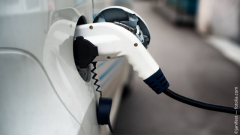Charging

How to “Refuel” Electric Vehicles
Electric vehicles (EV) and plug-in hybrid electric vehicles (PHEV), that are built for the European market, are generally equipped for both AC and DC charging.
When charging with AC, the power conversion takes place on board. AC charging is slower than DC charging because the power levels are lower (only 22kW at max). Therefore, charging with AC is used for longer charging durations, such as charging overnight or while at work.
Whereas DC charging can be used for ultra-fast charging. This is achieved with high power levels of up to 350kW. The power conversion does not happen in the car itself, but in special charging stations. These are necessary to enable a quick refill, while on the go.
Our Competence in Charging
While the goal is simple – charging the battery – there is a wide variety of components needed, to fulfil the task. CODICO is able to offer a large portfolio of common or customer-specific products, which comply with industry standards. On request, we can help with developing suitable magnetic components or provide you with an overview over our wide range of film capacitors for filtering, PFC and LLC circuits. Furthermore, we are capable of providing scale-iDrivers, shunt resistors, leakage current sensors and more, to meet all your requirements.
Project in the Area of Charging
CODICO has already contributed to different projects, such as
- In-Cable Control and Protection Devices (ICCPD) – Mode 2 Charging
- Wallboxes – Mode 3 Charging
- Charging Stations – Mode 4 Charging
- On-Board-Charger (OBC)
